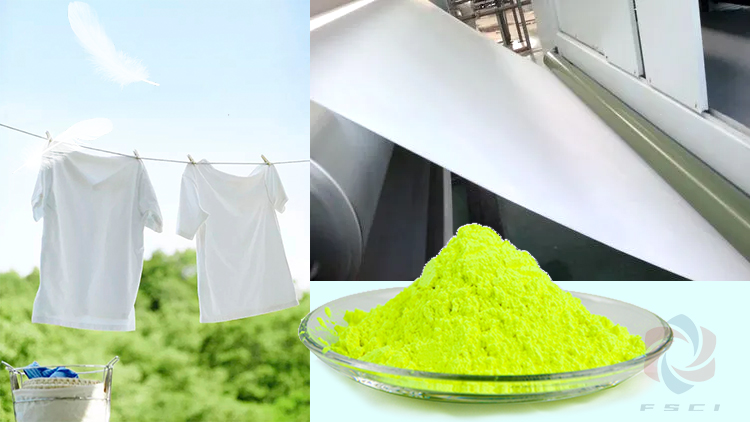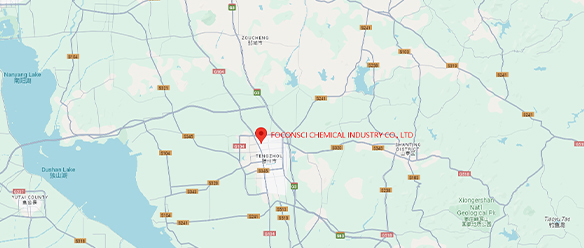المبيض الفلورسنت في النسيج والورق: تحسين اللمعان والاستقطاب البصري
أصبحت المواد المضيئة الفلورية ضرورية في صناعتي النسيج والورق، حيث توفر لمعاناً نابضاً يعزز جاذبية المنتجات النسيجية ومنتجات الورق بصرياً. يستكشف هذا المقال دور هذه المواد، مع التركيز على التفاعل بين الأزوبيسوبيوتيرونيترايل (AIBN)، وكلوريد الروثينيوم الثلاثي، و اليوديد البوتاسيوم، وتطبيقاتها في عمليات الصباغة والتبييض.
ø فهم المواد المضيئة الفلورية
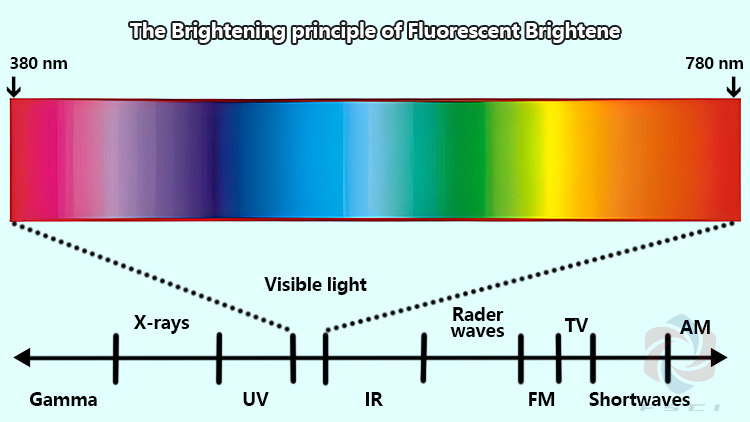
المواد المضيئة الفلورية هي مركبات عضوية ت汲ب الضوء فوق البنفسجي وتعيد إصداره كضوء مرئي، مما يخلق تأثيراً مضيئاً. وهي ذات قيمة خاصة في التطبيقات التي يكون فيها مظهر النظافة واللمعان حاسماً. من خلال دمج هذه المواد، يمكن للمصنعين تحقيق منتج نهائي أكثر حيوية وجاذبية، سواء كان ذلك في النسيج أو الورق.
ø المكونات الرئيسية في الصباغة والتبييض
الأزوبيسوبيوتيرونيترايل (AIBN) CAS 78-67-1
AIBN هو مبادر يستخدم على نطاق واسع في عمليات التحلل والصبغ، خاصة في إنتاج الألياف الصناعية ضمن صناعة النسيج. فإنه يولد جذور حرة عند تحلله الحراري، مما يسهل ربط المبيض الفلوري بالألياف. هذا العملية تزيد من متانة تأثير التبييض، مما يضمن أن الأقمشة تحتفظ بمظهرها اللامع حتى بعد غسلات متعددة.
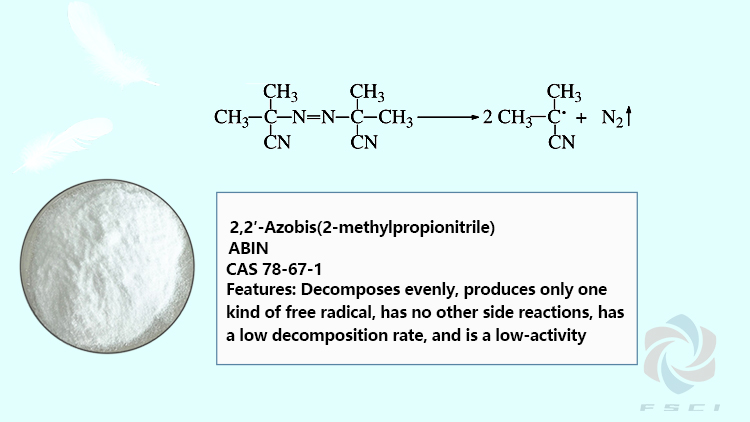
(تعرف أكثر عن خصائص 2,4-دييزيوتيرونيتريلا : https://pubchem.ncbi.nlm.nih.gov/compound/2_2_-Azobis_2-methylpropionitrile.)
كلوريد الروثينيوم CAS 10049-08-8
يعمل كلوريد الروثينيوم كمحفز في العديد من réactions الكيميائية، بما في ذلك تلك التي تنطوي على صنع الصبغة. في سياق المبيض الفلوري، فإنه يعزز التفاعل بين الصبغات والعوامل المبيضة، مما يؤدي إلى امتصاص وكفاءة أعلى في التثبيت على المادة. وهذا لا يحسن فقط شدة البياض المحقق ولكن أيضاً يعزز استقرار اللون بشكل عام.
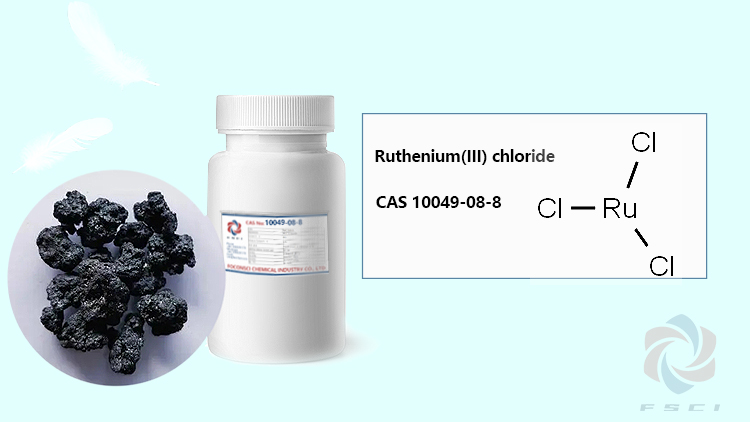
(مركز المعلومات الوطني للتكنولوجيا الحيوية (2024). ملخص مركب PubChem لـ CID 61850، ثلاثي كلوريد الروثينيوم. تم الاسترجاع في 17 أكتوبر 2024 من https://pubchem.ncbi.nlm.nih.gov/compound/Ruthenium-trichloride.)
يوديد البوتاسيوم CAS 7681-11-0
يلعب يوديد البوتاسيوم دورًا مهمًا في تحسين فعالية مُبيّض الفلورسنت. فهو يعمل كمستقر وميسّر في عمليات الصباغة، مما يحسن دمج الصبغ والمبيضات في الألياف. كما يمكن لوجوده أن يساعد في تقليل أي تأثيرات سلبية قد تحدث أثناء الصباغة، مما يضمن نتائج متسقة.
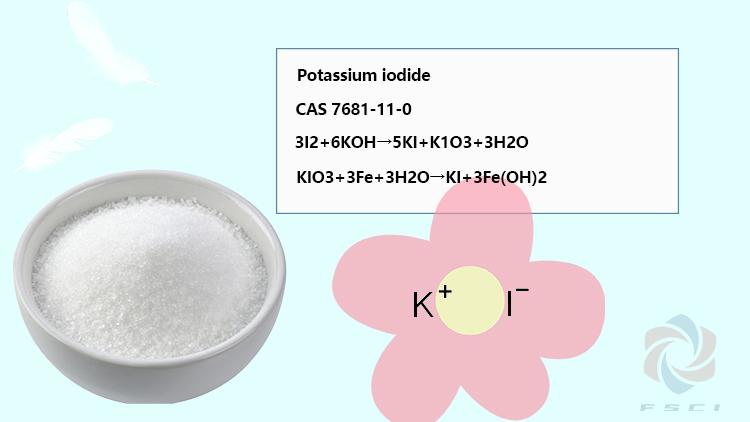
(مركز المعلومات الوطني للتكنولوجيا الحيوية (2024). ملخص مركب PubChem لـ CID 4875، يوديد البوتاسيوم. تم الاسترجاع في 17 أكتوبر 2024 من https://pubchem.ncbi.nlm.nih.gov/compound/Potassium-Iodide.)
ø التطبيقات في صناعة النسيج
في صناعة النسيج، توفر مزيج AIBN وثلاثي كلوريد الروثينيوم ويوديد البوتاسيوم مع مُبيّض الفلورسنت مجموعة من الفوائد:
- السطوع المحسن :تظهر الأقمشة المعالجة بهذه المواد درجة عالية من اللمعان والبياض، مما يجعلها أكثر جاذبية للمستهلكين.
- صلابة اللون :الارتباط المحسن بين الصبغات والألياف يضمن بقاء الألوان زاهية مع مرور الوقت، حتى بعد الغسيل.
- الاستدامة : استخدام مُبيّض الفلورسنت بكفاءة يمكن أن يقلل من الحاجة إلى التصنيع المفرط للصبغات، مما يشجع على ممارسات تصنيع أكثر استدامة.
ø التطبيقات في صناعة الورق
في صناعة الورق، تكون المُبيّضات الفلورسنت ضرورية لتحقيق البياض المطلوب في مختلف منتجات الورق:
- طباعة ذات جودة عالية : الأوراق المعالجة بالمُبيّض الفلورسنت توفر سطحًا أكثر إشراقًا، مما يعزز جودة الطباعة ودقة إنتاج الألوان.
- الفعالية من حيث التكلفة :تحقيق البياض المطلوب باستخدام تركيزات أقل من الصبغات يسمح للمصنعين بتقليل تكاليف المواد والتأثير البيئي.
- تعددية الاستخدام :يمكن استخدام هذه المواد عبر مجموعة واسعة من درجات الورق، من أوراق الجرائد إلى الرسومات الفاخرة، مما يجعلها ذات قيمة لا تقدر بثمن في التطبيقات المختلفة.
ø خاتمة
تُحسّن المبيضات الفلورية، خاصة عند دمجها مع مواد مثل الأزوبيسإيزوبوتيرونيترايل، وثلاثي كلوريد الروثينيوم، و اليوديد البوتاسي، بشكل كبير من البياض واللمعان النسيج والأوراق. هذه الابتكارات لا تحسن الجاذبية البصرية فقط، بل تسهم أيضًا في عمر المنتج وجودته.
إذا كنت تبحث عن منتجات كيميائية عالية الجودة، مصنع فوكونشي الكيميائي يمكنه تقديم حلول مميزة لك.
لدينا المبيضات الفلورية توفر أداء استثنائي مناسب لصناعة ت النسيج وصناعة الورق.
نحن ملتزمون بتقديم منتجات تتوافق مع المعايير الدولية، مما يضمن كفاءة إنتاجك وجودة منتجاتك.
لا تتردد في التواصل معنا للحصول على المزيد من المعلومات حول منتجاتنا أو لطلب عرض أسعار!

| الاسم الكيميائي | رقم CAS. | نوع | مجالات التطبيق |
| 2,2'-ازوبيس(2-ميثيلبروبينيترايل) | 78-67-1 | بيروكسيد عضوي | يُستخدم في التفاعلات التبلورية وكمساعد مبادئ |
| كلوريد الروثينيوم (III) | 10049-08-8 | مركب معدني | محفز، يستخدم على نطاق واسع في التركيب الكيميائي |
| يوديد البوتاسيوم | 7681-11-0 | المعادن | دواء، تركيب كيميائي، ومادة تحليلية |
| مبيض Florescent 71 | 16090-02-1 | مُبيّض Florescent غير أيوني | يُستخدم لتبييض الأنسجة والورق والبلاستيك |
| مُبيّض Florescent BBU | 16470-24-9 | مُبيّض Florescent غير أيوني | تأثير التبييض في الأنسجة والمُنظفات |
| مُبيّض Florescent CBS-X | 27344-41-8 | مُبيّض Florescent غير أيوني | يعزز اللمعان في صناعات النسيج والتغليف |
| المبيض الفلوري KCB | 5089-22-5 | مُبيّض Florescent غير أيوني | يحسن اللون واللمعان في صناعات الورق والبلاستيك |
| مُبيّض بصري OB-1 | 1533-45-5 | مُبيّض Florescent غير أيوني | تُستخدم في المنظفات، مساحيق الغسيل، والنسيج لتحسين التبييض |
| مُضيء Florescent 378 | 40470-68-6 | مُبيّض Florescent غير أيوني | تُستخدم للتبييض في الورق، البلاستيك، والطلاء |
| مضيء Florescent OB | 7128-64-5 | مُبيّض Florescent غير أيوني | يحسن البياض واللمعان في النسيج والمنظفات |
| مُبيّض الفلورسنت BA | 12768-92-2 | مُبيّض Florescent غير أيوني | يعزز اللون واللمعان في النسيج والبلاستيك |


 EN
EN
 AR
AR
 BG
BG
 HR
HR
 CS
CS
 DA
DA
 NL
NL
 FI
FI
 FR
FR
 DE
DE
 EL
EL
 HI
HI
 IT
IT
 JA
JA
 KO
KO
 NO
NO
 PL
PL
 PT
PT
 RO
RO
 RU
RU
 ES
ES
 SV
SV
 TL
TL
 IW
IW
 ID
ID
 LV
LV
 LT
LT
 SR
SR
 SK
SK
 VI
VI
 HU
HU
 TH
TH
 TR
TR
 GA
GA
 CY
CY
 KA
KA
 LA
LA
 MN
MN
 KK
KK
 LB
LB

